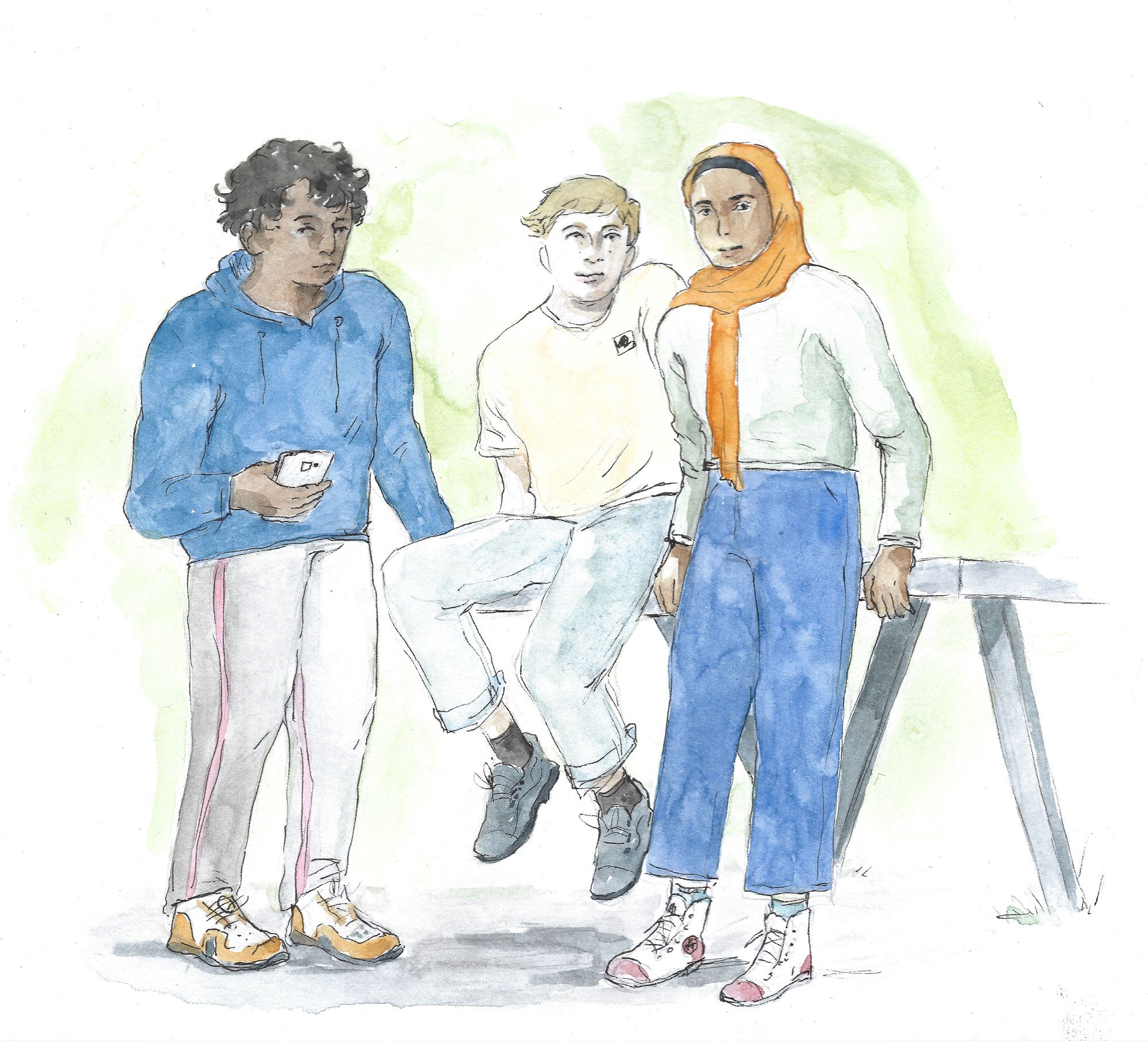Parent Tips for Helping Adolescents after Disasters
Parent Tips for Helping Adolescents after Disasters
- Reactions: Detachment, shame, and guilt
- Reactions: Self-consciousness
- Reactions: Acting out behavior
- Reactions: Fears of recurrence and reactions to reminders
- Reactions: Abrupt shifts in interpersonal relationships
- Reactions: Radical changes in attitude
- Reactions: Concern for other survivors and families
- Startpage
Reactions: Detachment, shame, and guilt
Responses
- Provide a safe time to discuss with your teen the events and their feelings.
- Emphasize that these feelings are common, and correct excessive self-blame with realistic explanations of what actually could have been done.
Examples of things to do and say
- “Many teens – and adults – feel like you do, angry and blaming themselves that they could have done more. You’re not at fault.“
Reactions: Self-consciousness
About their fears, sense of vulnerability, fear of being labeled abnormal
Responses
- Help teens understand that these feelings are common.
- Encourage relationships with family and peers for needed support during the recovery period.
Examples of things to do and say
- “I was feeling the same thing. Scared and helpless. Most people feel like this when a disaster happens, even if they look calm on the outside.”
- “My cell phone is working again, why don’t you see if you can get a hold of Pete to see how he’s doing.”
- “And thanks for playing the game with your little sister. She’s much better now.”
Reactions: Acting out behavior
Using alcohol and drugs, accident-prone behavior
Responses
- Help teens understand that acting out behavior is a dangerous way to express strong feelings (like anger) over what happened.
- Limit access to alcohol and drugs.
- On a time-limited basis, keep a closer watch on where they are going and what they are planning to do.
Examples of things to do and say
- “Many teens — and some adults — feel out of control and angry after a disaster like this. They think drinking or taking drugs will help somehow. It’s very normal to feel that way — but it’s not a good idea to act on it.”
- “It’s important during these times that I know where you are and how to contact you.” Assure them that this extra checking-in is temporary, just until things have stabilized.
Reactions: Fears of recurrence and reactions to reminders
Responses
- Help to identify different reminders (people, places, sounds, smells, feelings, time of day) and to clarify the difference between the event and the reminders that occur after it.
- Explain to teens that media coverage of the disaster can trigger fears of it happening again.
Examples of things to do and say
- “When you’re reminded, you might try saying to yourself, 'I am upset now because I am being reminded, but it is different now because there is no fire and I am safe.' ”
- Suggest, “Watching the news reports could make it worse, because they are playing the same images over and over. How about turning it off now?”
Reactions: Abrupt shifts in interpersonal relationships
Teens may pull away from parents, family, and even from peers; they may respond strongly to parent’s reactions in the crisis
Responses
- Explain that the strain on relationships is expectable. Emphasize that everyone needs family and friends for support during the recovery period.
- Encourage tolerance for different family members’ courses of recovery.
- Accept responsibility for your own feelings.
Examples of things to do and say
- Spend more time talking as a family about how everyone is doing. Say, “You know, the fact that we’re crabby with each other is completely normal, given what we’ve been through. I think we’re handling things amazingly. It’s a good thing we have each other.”
- You might say, “I appreciate your being calm when your brother was screaming last night. I know he woke you up, too.”
- “I want to apologize for being irritable with you yesterday. I am going to work harder to stay calm myself.”
Reactions: Radical changes in attitude
Responses
- Explain that changes in people’s attitudes after a disaster are common, but often return back over time.
Examples of things to do and say
- “We are all under great stress. When people’s lives are disrupted this way, we all feel more scared, angry – even full of revenge. It might not seem like it, but we all will feel better when we get back to a more structured routine.”
Reactions: Concern for other survivors and families
Responses
- Encourage constructive activities on behalf of others, but do not let them burden themselves with undue responsibility.
Examples of things to do and say
- Help teens to identify projects that are age-appropriate and meaningful (e.g. doing the shopping).
Contact
You are welcome to send us a message using the following contact:
Bundespsychotherapeutenkammer (BPtK)
Klosterstraße 64, 10179 Berlin
E-Mail: info@bptk.de
Tel.: 030 278785-0
Fax: 030 278785-44
